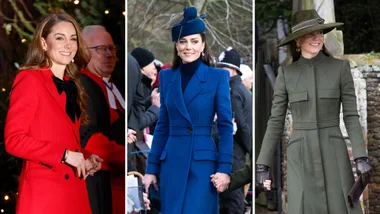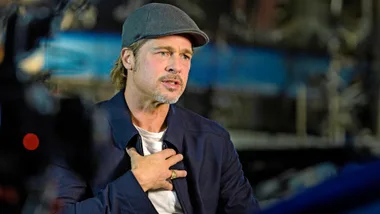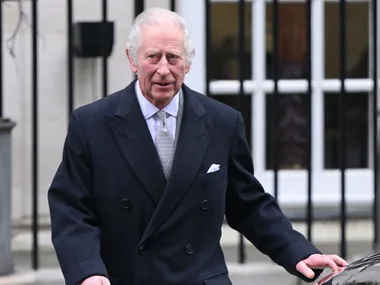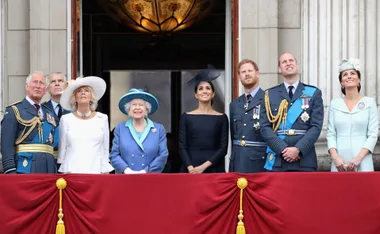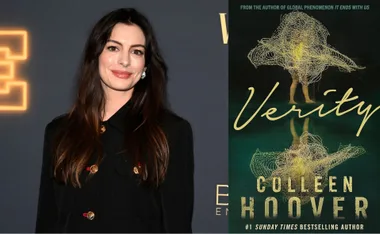Published by Chatto & Windus, and selected as the Great Read in the January issue of The Australian Women’s Weekly. Q Your book, The Amateur Marriage, begins during the war years – what prompted you to start your story at that particular time? A. Practical reasons, at first. I had to begin the story far enough back to show the whole history of the marriage. But what I didn’t foresee was the great pleasure of settling into the 1940s. The music, the clothes, the street scenes, and above all the general innocence and optimism were so appealing, I hated to leave that time behind. When I reached the 50s I thought, “Oh, drat, on to the bland years.” Q. You were too young to remember WWII, so I imagine that recreating the mood involved considerable research, or was it pure imagination? A. I must confess to relying heavily on a daughter who knows how to work the internet. ‘What perfume did women wear in those days?’, I’d ask her, and zip, zip, she had the answer – not only the brand name, but she could have ordered me an actual bottle! (I’m very impressed with the internet.) Originally I had thought, too, that I could quiz my parents and their friends, but it turns out that people tend to forget the kind of trivia that novelists need. For instance, blackouts: did they have to have their blackout curtains closed every single night, or only when the air-raid siren sounded? Nobody could remember. In the end, it was a friend slightly older than I – someone who’d been 8 or so during the War – who came up with the answer. Q. Was there really a Polish quarter at that time in Baltimore? A. There was, and there still is – a thriving one, although more assimilated now than in the old days. Q. Why did you choose to make some of the main characters Polish? A. I’ve always had the feeling that the characters in my novels are steadily populating a little town–a sort of alternate-universe Baltimore. So far my people have been mostly “white-bread” types. I thought I’d like to add a group with a richer ethnic heritage. Q. Michael and his mother come from a small, tight-knit community – I loved it and it made me think that nowadays they don’t really exist (apart from those horrible gated communities – sorry, hope you don’t live in one), and that we have lost something valuable because of it – would you agree? A. I do agree. I can’t tell you how wistful I felt as I dealt with those neighbours coming and going, gossiping, commiserating, comparing each other’s potluck dishes. It’s my impression that some of that may still exist in the ethnic sections of Baltimore, but as more young outsiders move in, it’s dying out. Q. I found Pauline in her red coat a startling piece of imagery (made me want one) – was that just the stroke of a pen or did you once own a red coat and have fond memories of it? A. I’ve never owned a red coat; I’m not the type who could carry it off. Which illustrates the great joy of writing fiction: I got to carry it off vicariously. Q. Like many of the women in the book, I felt swept up by the romance of war – why did people respond like that to something so ghastly. Was it naivety and innocence and the lack of TV? A. That’s a question that interests me enormously. We have not responded that way to any war within my memory, certainly not Vietnam, not the first Gulf War or (heaven forbid) Iraq. I suspect that a great part of the reason was the vagueness of war’s image in people’s minds. They had nowhere near the clear and horrifying picture that television gave us later. Q. Are you impulsive – or have you always been a more circumspect, careful person? A. Oh, definitely circumspect, to a fault. That’s another example of vicarious living–I loved being inside Pauline’s head for a while, following every passing whim as it took hold of her. Q. Michael and Pauline’s marriage was ‘amateur’ because their decision to marry was so impulsive – but I was thinking that all marriages are amateur in the sense that they’re built on a romantic ideal that cannot possibly survive the realities of two people living together for a long time? A. You are expressing exactly the thought that I hope will occur to my readers. All marriages ARE amateur, really. I can’t even count the friends who have told me that if they’d known what they were getting into when they married, they’d never have dared to do it. I suppose it’s just as well we embark upon marriage so blindly. Q. I found Pauline exasperating but likeable and she was kind – look at how good she is with Pagan. How would you describe her? A. I think that it is precisely those qualities that make her so difficult. Her impetuousness, her unpredictability, her violent extremes of mood were her virtues. She was warm and empathetic and full of vitality, and she added more colour to Michael’s life than he ever could have hoped for on his own. Q. Who is your favourite character in the book and why? A. To my surprise and relief, it’s Pauline: relief because my fear, all along, was that I might be creating a good person/ bad person marriage, which would not be half as interesting as a marriage of two good people who go wrong when they’re together. I had worried I was weighing the scales toward Michael, who is certainly the more reasonable and introspective one. But by the end of the book, it was Pauline I missed the most. Q. Do you see their marriage as a big mistake? A. Oh, yes. Clearly they married for all the wrong reasons, even if they’re reasons every one of us can understand. But they also brought so much to each other. Different choices of mates – say a nice Polish girl for Michael, a WASPy ex-classmate for Pauline – might not have given their lives the same depth. Q. Did they stay together for so long because of love or because their lives were so knitted together, it was difficult to untie them? A. I’m not sure they were fully aware that they had any other option. At least from here, it looks to me as if divorce didn’t come so quickly to mind for people in the old days. Q. Do you still believe in marriage? A. For childbearing couples, I do. Children need two parents. (At least! I remember thinking that three would be even better.) And I like to see two gray-haired people holding hands and tottering along side by side; that always gives me a pang. Q. The sixties had a big impact on the family in your book, how were you affected by that period, and were you ever a hippy or a protest marcher? A. By the time the 60s were in full swing, I was married and living in Canada, well out of it all. Earlier I had participated in my share of civil rights marches and anti-war protests, but then my parents had as well; so you couldn’t call it a rebellion of any sort. Q. Did you experience any of the San Francisco depicted in your book? A. No, none – just the TV glimpses Michael refers to. Then while I was writing the book, I walked around the Haight-Ashbury section just to get a sense of that after-the-party atmosphere. It’s pretty drab and dead now. Q. This is your 16th book – correct? Do the words and story ideas keep tumbling out or do you sometimes find it hard to conjure up a story? A. Oh, my goodness, they’ve NEVER tumbled out! Finding a plot has always been hard for me. (And sometimes, if you’ve noticed, I just go ahead and write the book without one.) I have to sit down and really work at it, concoct something that feels forced and artificial at the start but then comes to life as the characters take over. Q. Can you imagine a life without writing? A. I can’t. It’s an addictive occupation, with its sense of leading alternate lives and that thrilling, miraculous moment when the characters start telling the story. I believe that if you said, “From now on you’ll just be writing for your desk drawer,” I would still have to go on working. Q. You have chosen to live a quiet and private life, avoiding the media blitz – why is that? A. I always say that asking a writer to “go public” is like telling a baker, “Since you bake bread, we’d like you to perform a ballet for us.” By nature, I just prefer to be private, and having written a novel doesn’t alter that. Q. By keeping a low profile, does this mean that you can be quite anonymous and where you live, no-one in the street or supermarket ever says ‘ you’re that famous writer!’ A. Nobody gives me a second glance. Q. Have you ever done a national publicity tour that included the whole shebang – press, book signings etc and if so, how was it? A. Never. I think it would truly destroy me. Q. Do you have what most people would consider a conventional life? A. It’s so conventional it would put you to sleep just hearing about it. Q. Have the film rights to The Amateur Marriage been sold? A. I don’t think so, but I’m always the last to know. My agent handles those mysteries. Q. To whom are you dedicating this book? A. To no one. Actually I’ve dedicated only one book–the one that came out just after my husband’s death, which I dedicated to his memory. Q. Have you ever been to Australia or plan to visit? A. I never have, although it’s one place that really interests me. I used to work in a library with a wonderful woman from Australia, and something about the way she described the air, of all things the way it felt on her skin (I guess she was homesick) made me long to go there.
Q&a: Anne Tyler
Published by Chatto & Windus, and selected as the Great Read in the January issue of The Australian Women's Weekly.


